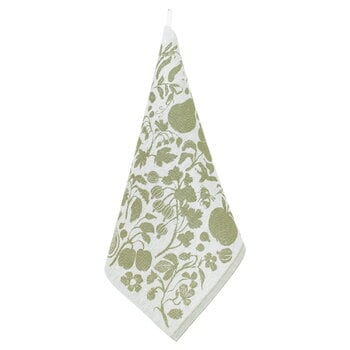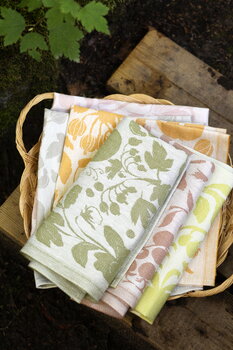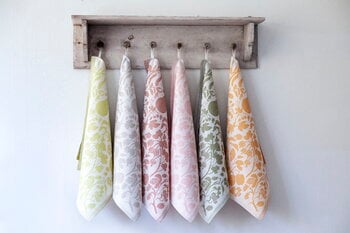The Puutarha napkin by Lapuan Kankurit is made of washed European linen, a carefree material with a naturally laid-back appearance that is ideal for rustic modern table settings. It is not necessary to iron the linen napkin – small wrinkles and creases give it a relaxed, natural look. However, if you prefer a neater style, you can iron the napkin with linen adjustments. Characteristic of undyed linen, the napkin gets lighter and softer with each wash.
The linen apron is decorated with a beautiful Puutarha pattern, which evokes the promise of late summer and harvest time with all its delicious bounty. Appropriate, since the word "puutarha" is Finnish for the garden. Thanks to its handy size, machine-washable material and lightweight feel, the Puutarha napkin is very versatile: in addition to table settings, it also serves as a face towel in the bathroom or on trips. The linen napkin is woven at the Lapuan Kankurit weaving mill in Finland.









